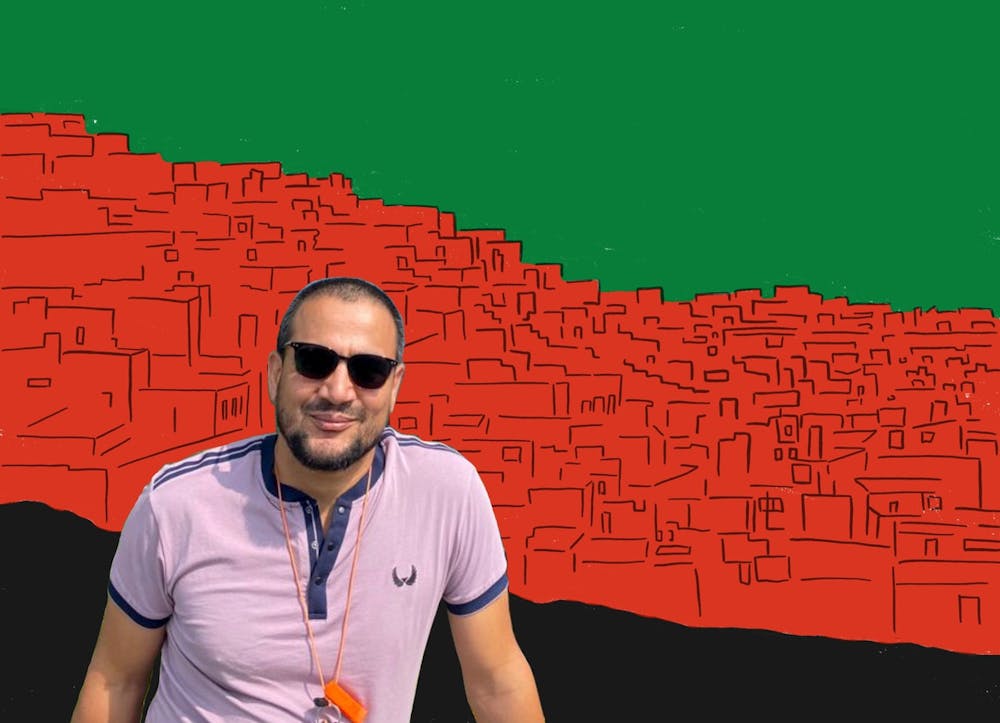Haqiq Rahmani remembers disturbing flashbacks from his childhood every time he turned on the TV or read the news in the last month.
“It really downs me,” Rahmani said. “I've seen people — dead bodies on the ground. Very, very horrible, horrible memories that I don't want to talk about.”
The 37-year-old UF wildlife conservation and ecology doctoral student still lives in fear that heightens every time he thinks about the safety of his family who remain in Afghanistan. Especially his father, a former translator at a USAID-funded program.
The Taliban, an ultraconservative political and religious faction, retook control of Afghanistan after the U.S. completely withdrew from the country in mid August. The Taliban governed the country from 1996 to 2001 until America invaded in response to the 9/11 attacks.
The U.S. airlifted more than 122,000 Americans and Afghans eligible for evacuation after the government collapse.
Twenty years of war claimed the lives of more than 71,000 Afghan and Pakistani civilians and more than 2,000 Americans. It ended almost right where it started — except the Taliban controls more territory than ever before.
Many Afghans fear a return to a pre-2001 Islamic fundamentalist state. A state where music was banned; women were forbidden to leave their homes without a male guardian; and massacres against civilians were commonplace.
Rahmani watches from the other side of the world, filled with uncertainty about what will happen to his homeland.
Like his parents, Rahmani was born in Kabul. The family fled to Pakistan in the 1990s to avoid the conflict between the Taliban and the Northern Alliance, a coalition of anti-Taliban militias.
Rahmani, who was 8 or 9 years old at the time, completed school in Pakistan alongside his siblings. Despite his hopes, it would be at least 10 years until he could safely return.
A year after the U.S. invasion, he resettled in Kabul. The long drought of peace in Afghanistan seemed to come to an end.
The job market flourished. Rahmani found a job with the Wildlife Conservation Society,an American-funded non-governmental organization. He explored mapping software and monitored the snow leopard population as a geographic data analyst, a role he kept until 2013.
But American involvement in the country wasn’t going to last forever, even if the situation worsened.
“Initially, we didn’t have any problems with the Taliban attacks,” he said. “And then after [2008], things started to happen. There were more issues, more attacks on military convoys, on humanitarian agencies and also, later, on schools and mosques by different groups.”
Politicians have promised an end to the war since the election of President Barack Obama in 2008. In 2020, President Donald Trump signed a peace deal with the Taliban and promised to withdraw by May 2021. President Joe Biden extended this deadline to August.
But with the Taliban’s seizure of Kabul, public opinion soured on the pullout.
Rahmani, like many Americans, believes the U.S. had a responsibility to keep Afghans safe.
“The U.S. should have not left us back to the Taliban because they went to basically free us from them,” Rahmani said. “And now we are back in the hands of the Taliban.”
It leaves him thinking: Twenty years of war. And for what? It’s 2001 all over again.
But some disagree.
It’s too soon to tell what the Taliban’s second reign will look like for Afghanistan’s 40 million people, said Ali Mian, an assistant professor at UF’s Center for Global Islamic Studies.
“There isn't a lot of ideological as well [as] organizational consistency or uniformity to the Taliban,” Mian said.
Two possibilities exist for the future of the Taliban government. It either continues as a regressive group, which would kill all progessive change that came about in the last 20 years, or as an organization willing to engage with the international community.
There’s still hope, Mian said, that the new ruling government won’t come down with the same iron fist as in the ’90s.
Rahmani, who moved to Gainesville on a conservation scholarship in 2017, hopes to stay in the U.S. after completing his Ph.D. Whether or not he returns to his birthplace remains unknown.
“I'm sure I would be able to find a job… to see how things will turn in Afghanistan and whether there will be potential opportunities for people to live peacefully and develop in the future,” he said.
In the meantime, Rahmani and his family will have to endure a waiting game with a potentially frightful outcome. Wait and witness the situation in their country. Wait and hope for their safety. Wait and pray for better days.
Contact Christian at ccasale@alligator.org. Follow him on Twitter @VanityHack.

Christian Casale is a history senior and the university desk editor for The Alligator. In his spare time, he loves writing his bio for the website and watching movies alone in the dark.






